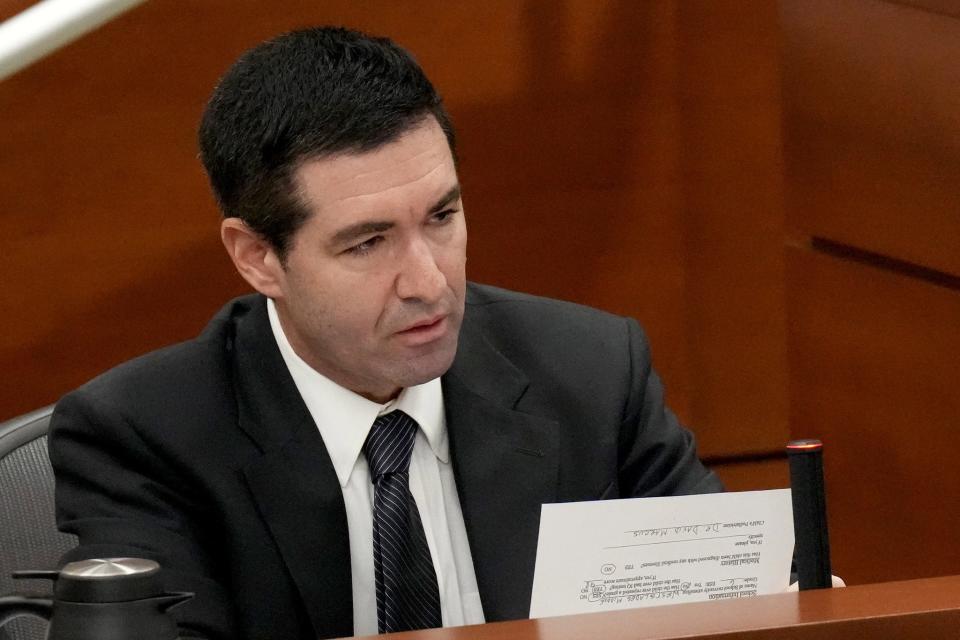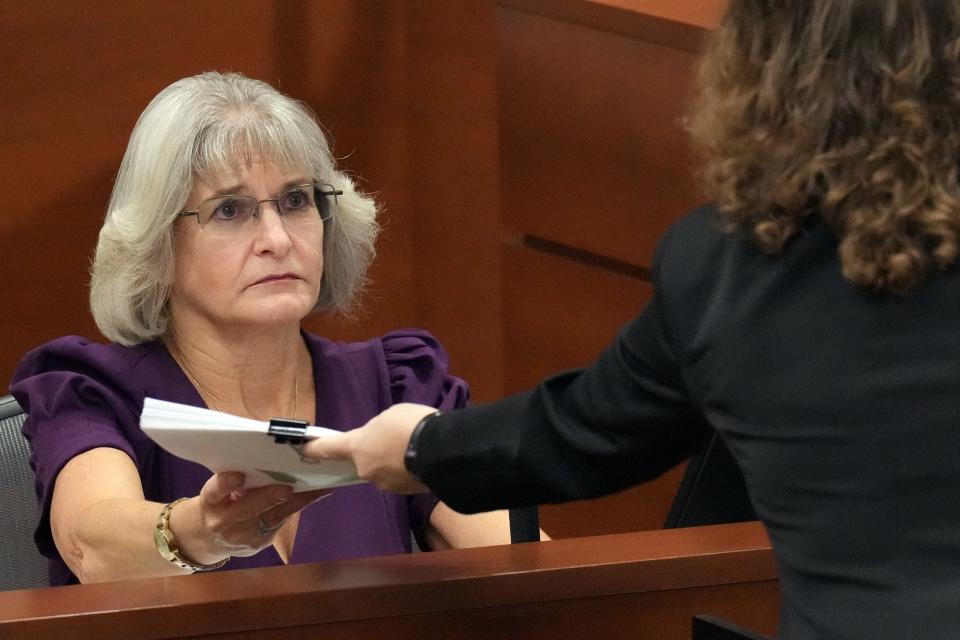Nikolas Cruz sentencing trial: Defense ends week with evidence of gunman's violent dreams
FORT LAUDERDALE — Testimony in the death penalty phase of the Nikolas Cruz trial will continue Monday in a Fort Lauderdale courtroom.
This week, Cruz's public defense team called 10 witnesses to the stand as it began presenting its case. They included Cruz's older sister Danielle Woodard, therapists and psychiatrists who worked with Cruz in a professional manner, and friends of his biological and adoptive mothers.
Testimony will resume Monday after a one-day break Friday. The Palm Beach Post is covering the daily proceedings live.
Cruz pleaded guilty in 2021 to killing 17 people at Marjory Stoneman Douglas High School in Parkland Florida on Feb. 14, 2018 and wounding 17 others. Prosecutors are seeking the death penalty.
The 12-person jury will recommend whether Cruz, then 19 and now 23, is put to death or sentenced to life in prison without parole. If it recommends death, Circuit Judge Elizabeth Scherer will make the final ruling, likely sometime this fall.
'Disturbing on a number of levels': Jurors tour preserved crime scene at Stoneman Douglas High
Anything but 'normal': Lives of Parkland victims' families marked by absence, anguish, sorrow
Looking ahead: The prosecution is done. Now, Nikolas Cruz's attorneys must work to save his life.
School therapist told Cruz psychiatrist he had 'dreams of killing others'
Dr. Brett Negin, a psychiatrist who met with Cruz from 2012 to 2017, was the second and last witness called to the stand Thursday. He diagnosed Cruz with Disruptive Behavior Disorder because of his difficulty interacting with peers and his irritability.
"His social skills as a whole were impaired," Negin said.
Defense attorney Tamara Curtis showed jurors a letter sent to Negin on June 5, 2014, by a therapist at Cruz's school. At the time, Cruz attended Cross Creek, a Broward County public school for students with emotional behavioral disabilities.
"Nikolas continues to present with extreme mood liability," wrote the therapist. " … He seems to be paranoid and places the blame on others for his behavioral problems. He has a preoccupation with guns and the military and perseverates on this topic inappropriately."

Cruz destroyed his television after losing a video game, the letter continued. He "has a hatchet that he uses to chop up a dead tree in the backyard. Mom has not been able to locate that hatchet as of lately."
He carved holes in the walls of the bathroom and used sharp tools to cut through furniture upholstery.
"Per recent information shared in school, he dreams of killing others and is covered in blood," the therapist wrote.
She finished the letter by recommending Negin re-assess Cruz's response to his medication, as she viewed it to be "limited at best."
Negin denied ever receiving the letter.
Nikolas Cruz threatened to stab elementary school teacher, psychiatrist Laurie Karpf says
Dr. Laurie Karpf, a psychiatrist, treated Cruz from age 10 to 13. She told jurors the gunman's adoptive mother was concerned about his irritability, anxiety and aggression.
Lynda Cruz was a good woman, Karpf said: "She tried to be a good mom to her two kids. She had her hands full."
Karpf read a note Lynda Cruz wrote to her about her son's behavior. He had trashed his desk at school and cursed at his third-grade teacher, she said. Once, he threatened to stab the teacher, and he hit a classmate with a lunchbox.
"Cursing, screaming and yelling a lot," Karpf said. "Repeating himself."

Cruz took Focalin and Strattera, two medications to treat his ADHD, when he first met Karpf. Tamara Curtis, one of Cruz's attorneys, asked: How do you know that a child is taking their medication correctly?
"Your best guess," Karpf said.
She adjusted the doses to address his behavior, and the results were mixed. He started doing his homework more and not cursing as much, but he was still impulsive and angry, the doctor said.
First up is Dr. Laurie Karpf, a psychiatrist who treated Cruz from age 10 to 13. His mother, Lynda, was concerned about his irritability, anxiety and aggression.
"She was a good woman," the doctor said. "She tried to be a good mom to her two kids. She had her hands full."— Hannah Phillips (@haphillips96) August 25, 2022
She would have liked to keep seeing Cruz, but his mother discontinued his treatment with Karpf after their insurance changed.
During cross-examination, prosecutor Nicole Chiappone harped on the fact that Karpf never actually saw Cruz become aggressive because, she said, he could control his actions when he wanted to.
It's the same point prosecutors made Wednesday while cross examining Dr. Frederick Kravitz, who also said he'd never witnessed one of Cruz's angry outbursts.
Was there anything to indicate Cruz would one day kill 17 people? Chiappone asked. Like Kravitz, Karpf said "no."
Hannah Phillips is a journalist covering public safety and criminal justice at The Palm Beach Post. You can reach her at hphillips@pbpost.com.
This article originally appeared on Palm Beach Post: Nikolas Cruz trial: Gunman's focus on guns evident years before shooting

